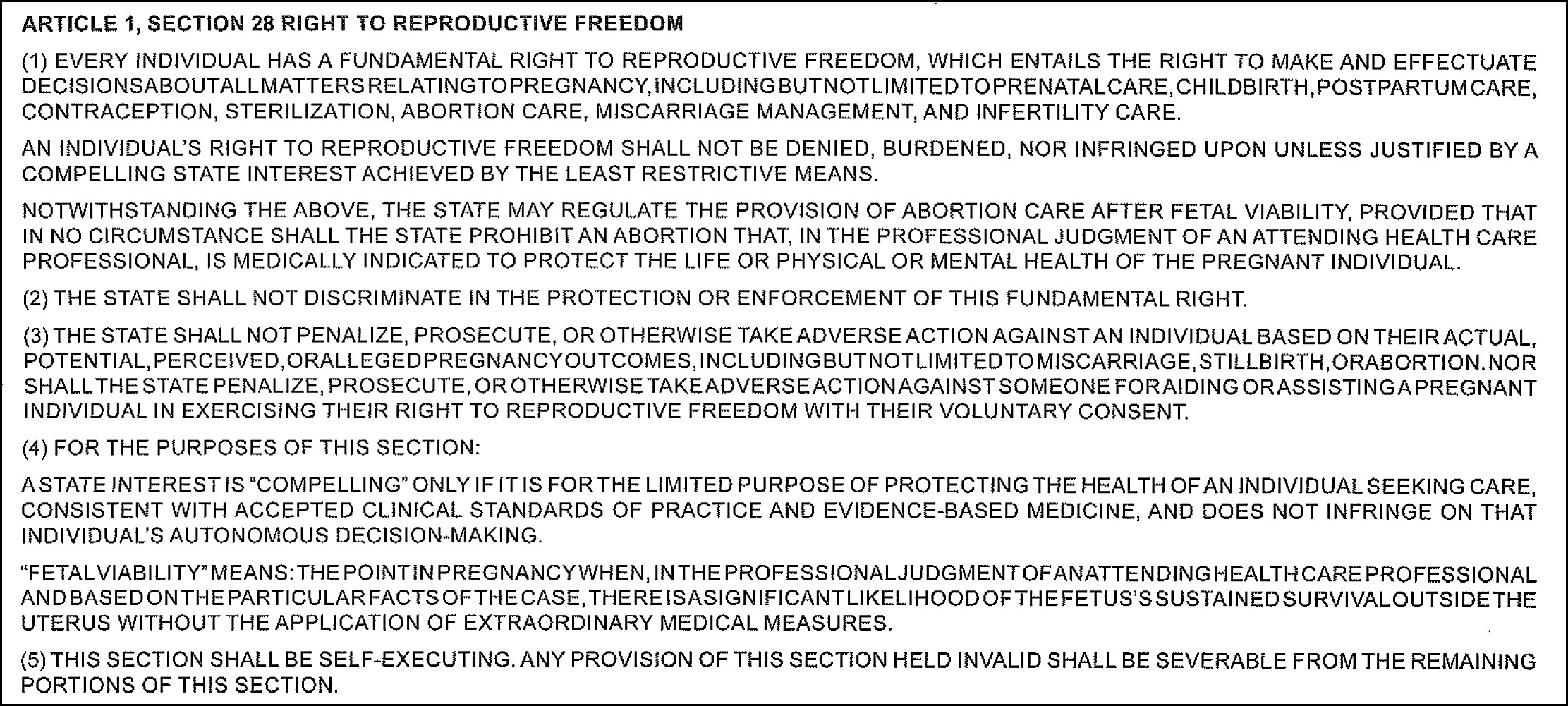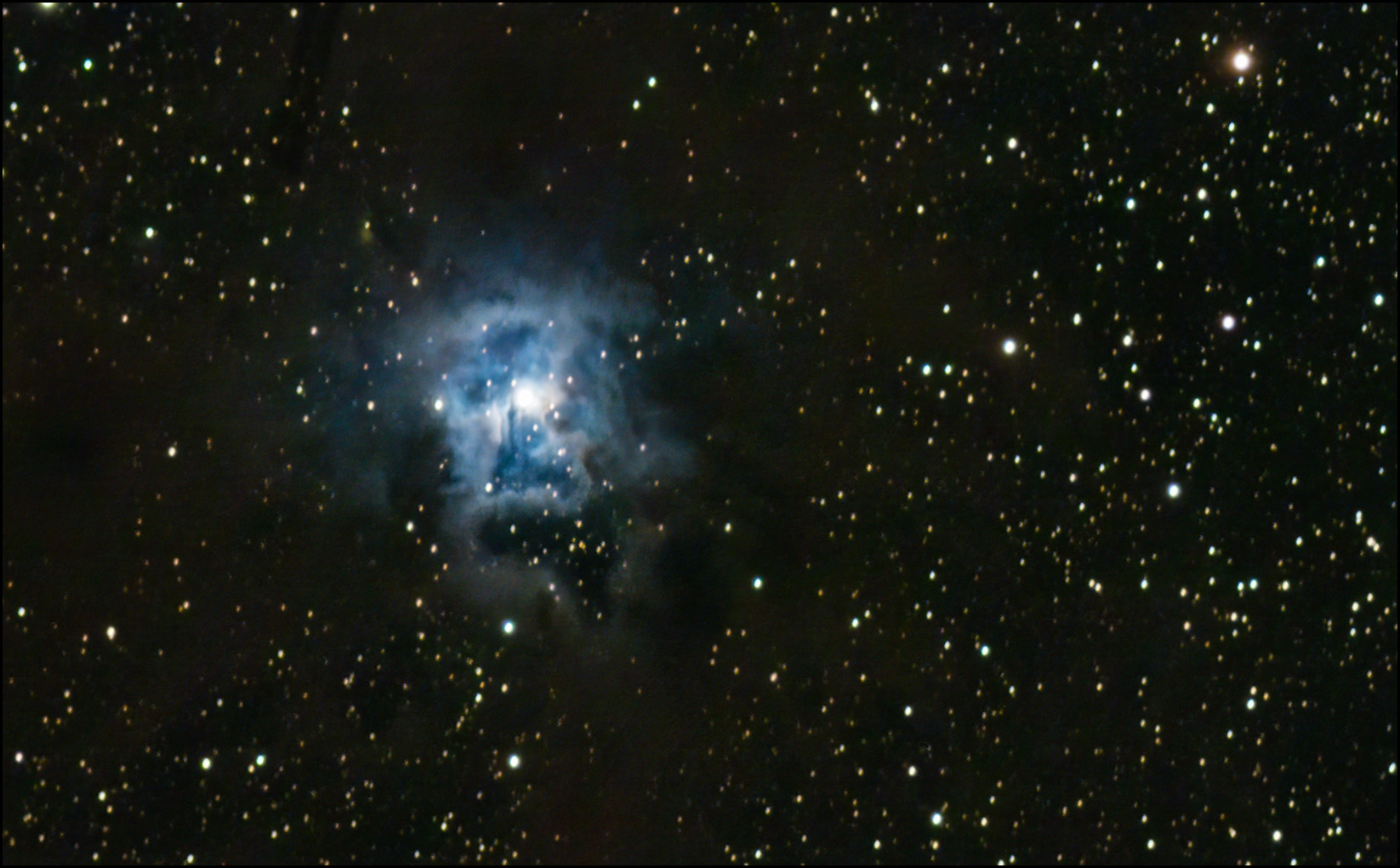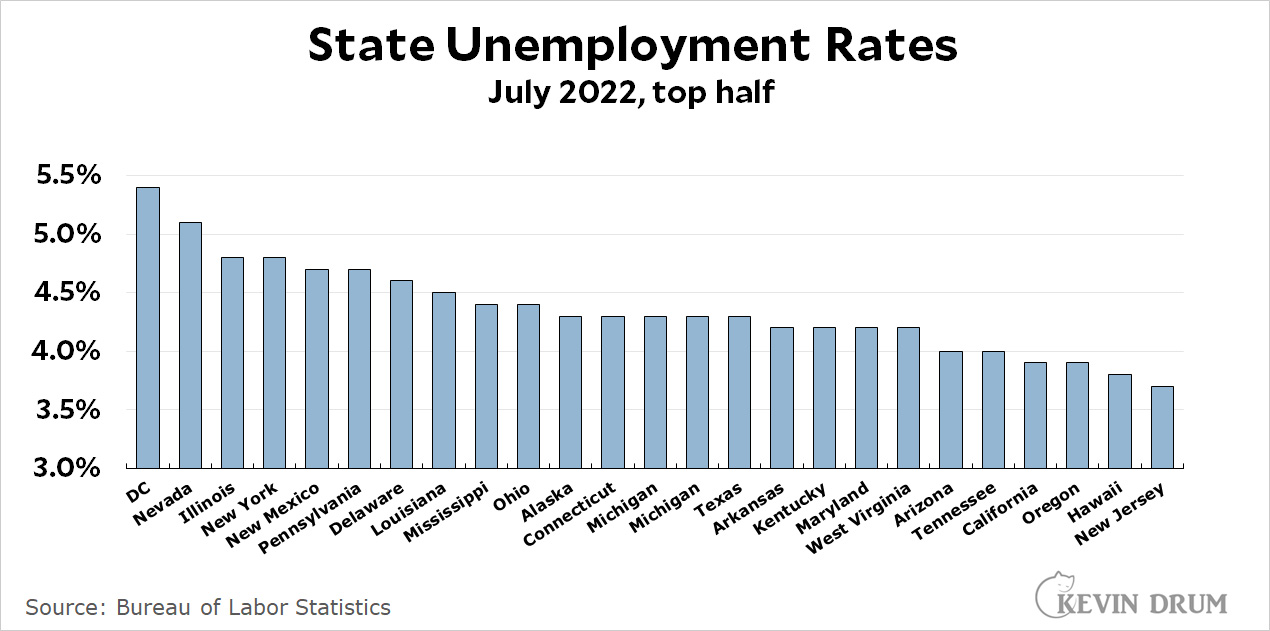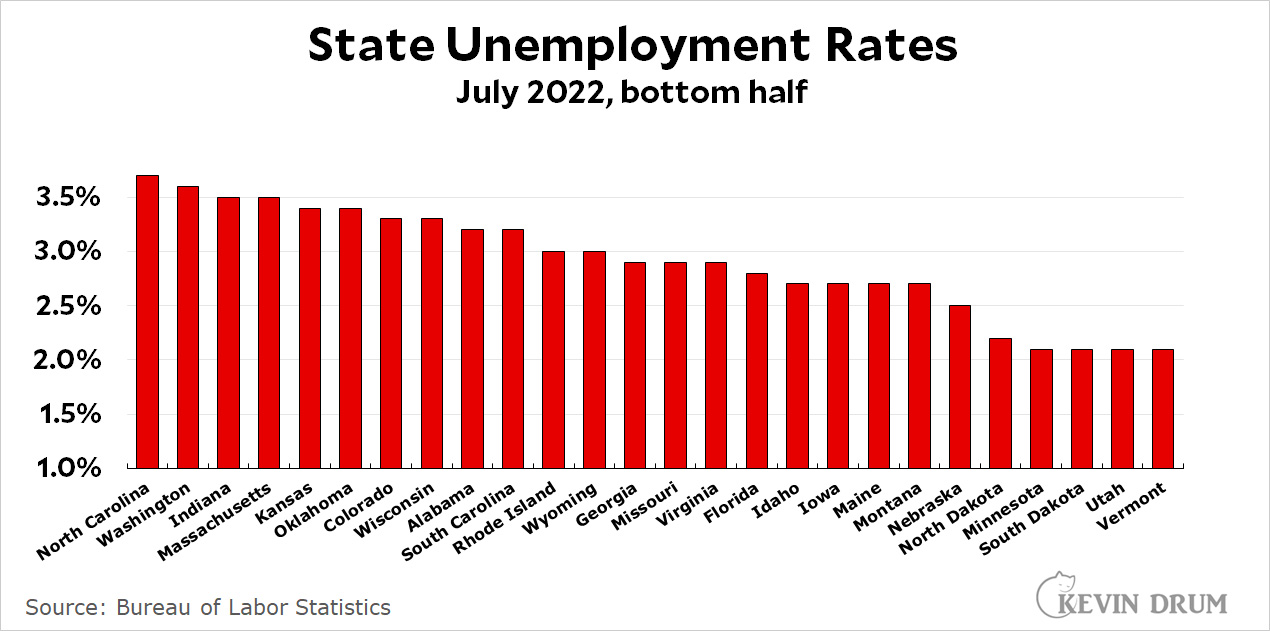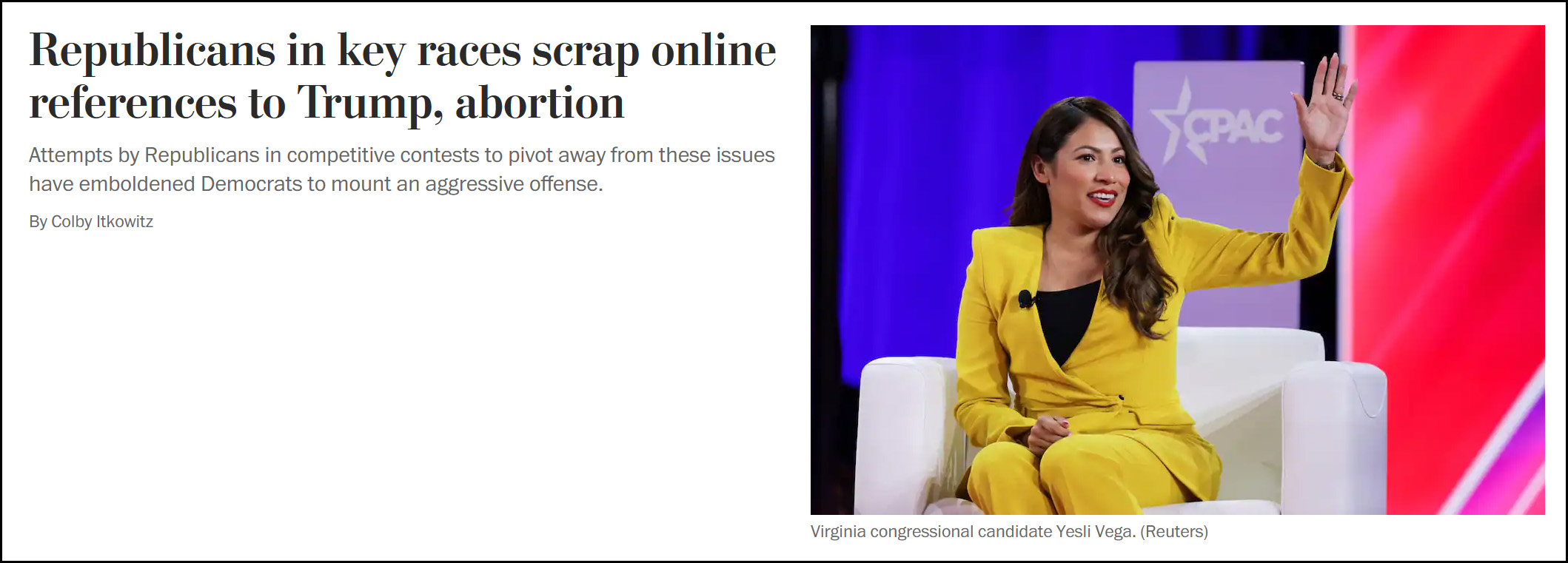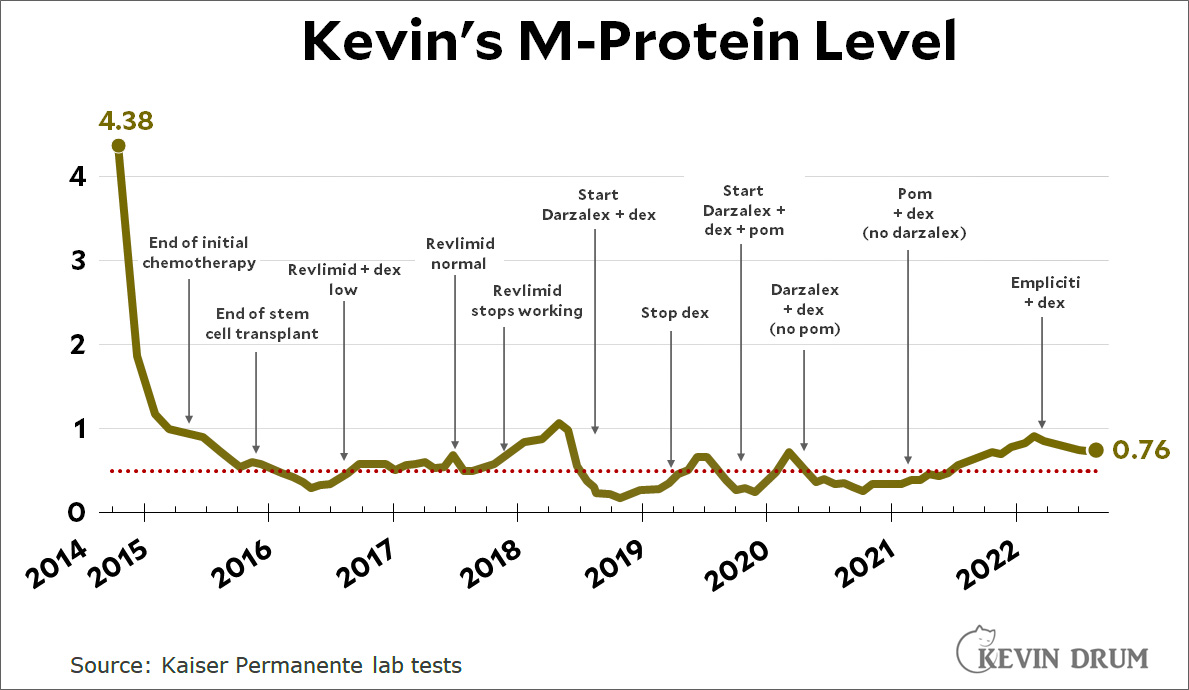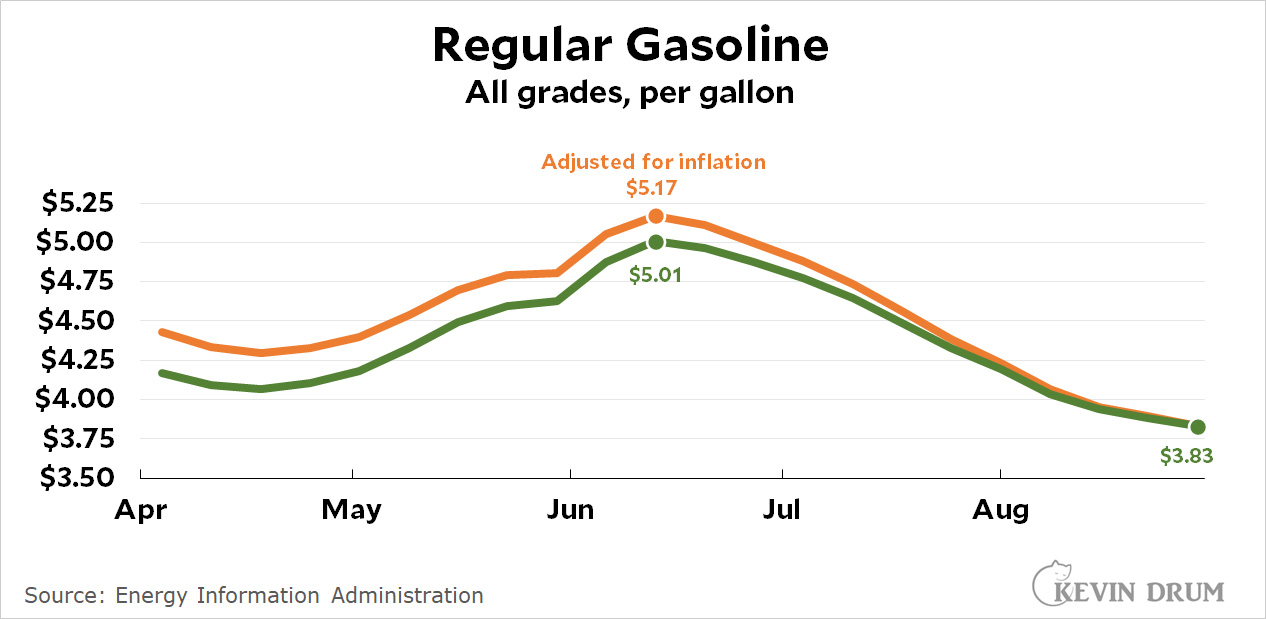Earlier this year the Department of Education conducted a "special administration" of the long-term NAEP test for 9-year-olds. Why the long-term test instead of the main NAEP test? Because by chance they had conducted a long-term assessment in 2020, which meant that a 2022 retest would tell us a lot about how the COVID-19 pandemic affected elementary school students.¹
So how did our fourth-graders do? In a word, badly. Here are the topline results:
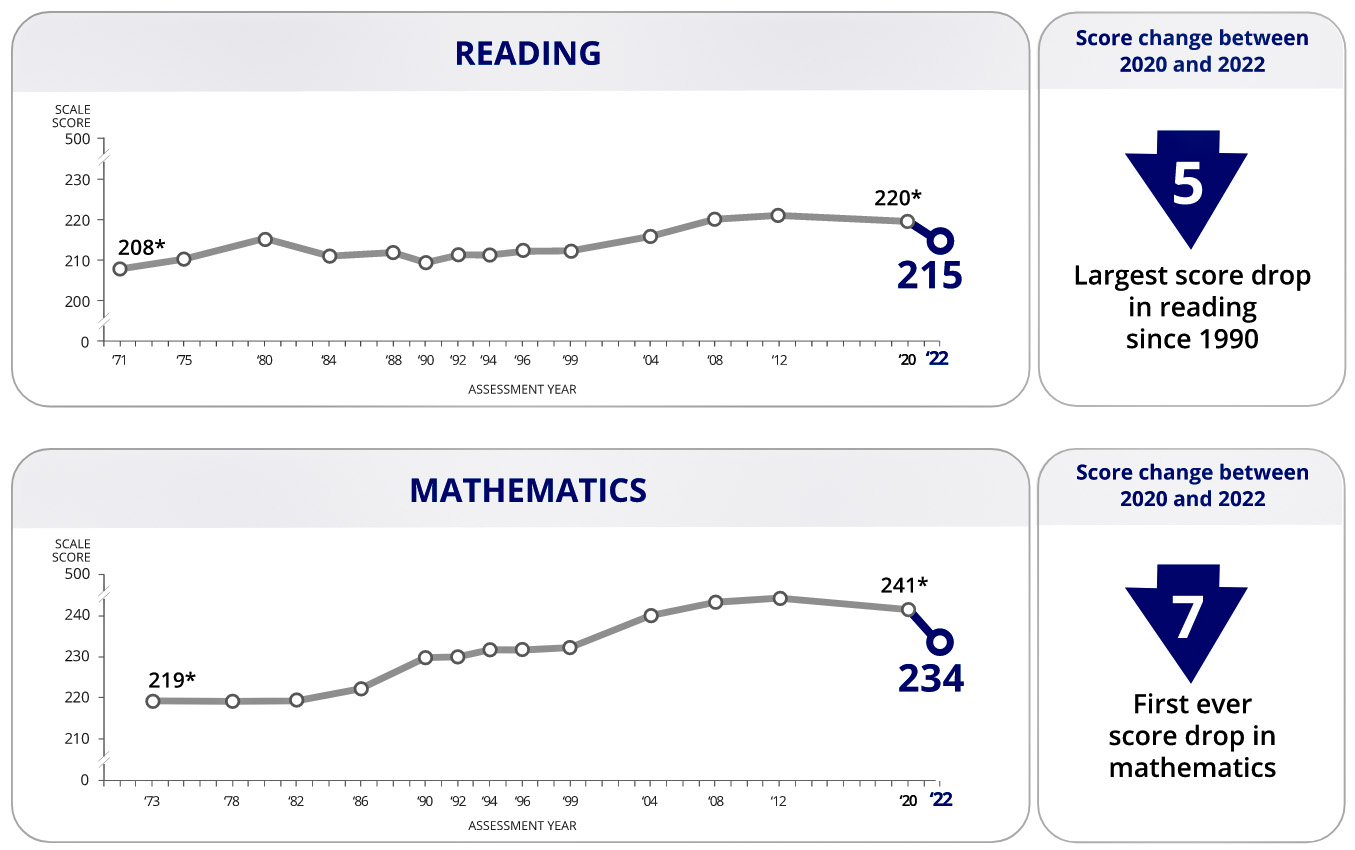 The usual rule of thumb is that ten points on the NAEP equals one grade level. This means that in reading, kids in fourth grade this year were about half a grade level behind the fourth graders of 2020. In math they were about three-quarters of a grade level behind.
The usual rule of thumb is that ten points on the NAEP equals one grade level. This means that in reading, kids in fourth grade this year were about half a grade level behind the fourth graders of 2020. In math they were about three-quarters of a grade level behind.
But it gets worse. The best students lost only 2-3 points in both reading and math while the worst students lost 10-12 points. Low-income students (-6 in reading, -8 in math) lost more than non-poor students (-3 in reading, -5 in math). Students in the West (-1 in reading, -5 in math) fared considerably better than students in every other region (-7 in reading, -8 in math). Black, white, and Hispanic kids all lost about six points in reading. In math, everyone lost a lot but Black kids lost a catastrophic 13 points. Oddly city kids didn't lose anything in reading. Aside from that, kids in suburbs did a little worse than kids in cities, towns, and rural areas.
That's the basics. I'm sure there will be plenty of analysis over the next few weeks, but for now the basic results are all we have. I also suspect there's going to be a very great deal of shrieking and moaning about how our children are all doomed to a future of failure, but please don't join in. These things tend to wash out in later school years, and I very much doubt that by the time our fourth graders graduate from high school they'll be noticeably different from any other graduating class.
¹The long-term assessment is a special version of the NAEP that's been designed to stay the same from year to year, thus making it highly useful for comparisons over time. However, over the course of two years it's no different than the main NAEP test. It's just chance that it happened to be the only test given in 2020.
The main NAEP test was given to 9-year-olds in 2019. It seems to me that 2019-22 would have been a perfectly useful comparison period, but I guess 2020-22 gives a slightly better focus on precisely the pandemic years.

